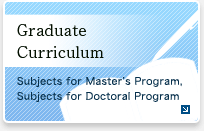2026.1.10
Mr. Aki Matsutaka (Azuma Lab, D2) was awarded the Encouragement Award of The Society of Instrument and Control Engineers, Kansai Chapter.
2025.12.15
Asst. Prof. Ikumi Banno was awarded the Outstanding Presentation Award at The 68th Japan Joint Automatic Control Conference.
2025.12.15
Mr. Aki Matsutaka (Azuma Lab, D2) was awarded the Outstanding Presentation Award at The 68th Japan Joint Automatic Control Conference.
2025.9.25
Mr. Aki Matsutaka (Azuma Lab, D2), Asst. Prof. Ikumi Banno and Prof. Shun-ichi Azuma received the Best Poster Award Second Place at the 9th International Symposium on Swarm Behavior and Bio-Inspired Robotics 2025 (SWARM2025).
2025.8.29
Mr. Masaki Fukao (Ohtsuka Lab, D1) and Prof. Toshiyuki Ohtsuka received the 2025 SICE Best Paper Award (Takeda Award).
2025.8.29
Prof. Toshiyuki Ohtsuka received the 2025 SICE Educational Contribution Award.
2025.8.29
Prof. Toshiyuki Ohtsuka was awarded the title of SICE Fellow.
2025.4.18
Senior Lecturer Kana EGUCHI was selected as the 2025 IFMBE's Asia-Pacific Research Networking (APRN) Fellows.
2025.6.27
Ms. Yui TATEYAMA (Kano Lab, UG4) was awarded the Young Researcher Award in the DICOMO2025 Symposium.
2025.6.27
Senior Lecturer Kana EGUCHI was awarded the best conversant award in DICOMO2025 Symposium.
2025.5.31
Mr. Daiki Sugiyama (Azuma Lab, D3) was awarded the Outstanding Student Presentation Award at SCI'25.
2025.5.31
Mr. Tomoki Tokiwa (Azuma Lab, M2) was awarded the Outstanding Student Presentation Award at SCI'25.
2025.5.31
Mr. Kazuki Hayakawa (Azuma Lab, M2) was awarded the Outstanding Student Presentation Award at SCI'25.
2025.5.31
Mr. Yuhei Takada (Azuma Lab, M1) was awarded the Outstanding Student Presentation Award at SCI'25.
2025.5.31
Mr. Yuta Tanikawa (Ohtsuka Lab, M1) was awarded the Outstanding Student Presentation Award at SCI'25.
2025.5.26
Mr. Daisuke Muroki (Ohtsuka Lab, M2) was awarded the ISCIE Young Author Award 2025.
2025.5.26
Prof. Shun-ichi Azuma received two Outstanding Paper Awards from the Institute of Systems, Control and Information Engineers (ISCIE).
2025.4.22
Asst. Prof. Satoshi Yagi received the Kyoto University IAC Social Impact Invention Award.
2025.3.24
Mr. Hirokazu Sakata (Ohtsuka Lab, M2) was awarded the Outstanding Student Award, the Society of Instrument and Control Engineers.
2025.3.24
Senior Lecturer Kana Eguchi was awarded the IEEE Kansai Section Young Professionals Award.
2025.2.28
Asst. Prof.Shota Kato, Mr. Kotaro Nagayama (Kano Lab, M2), and Prof. Manabu Kano received the 2024 Best Paper Award from the Technical Committee on Natural Language Understanding and Models of Communication (NLC),IEICE.
2025.02.17
Mr. Eisuke Matsubara (M2), Asst. Prof. Satoshi Yagi, Project Asst. Prof. Satoshi Yamamori, and Prof. Jun Morimoto received the Best Presentation Award at SI2024.
2025.1.15
Mr. Lin Kangyu (Ohtsuka Lab, D3) was awarded the Young Researcher's Award of Kansai Chapter, the Society of Instrument and Control Engineers.


Research and education in the Systems Science Course deals with a new and unified approach to varied technological problems from the standpoint of systems science. In particular, the approach requires the study of complex systems in the light of self-regulation, self-organization, and self-production. This is closely related to the need for study of the rapid growth in intelligent systems, and also in global systems such as world-wide computer networks. Emphasis is also placed upon the understanding of complicated mutual interactions, hierarchical systems, distributed or parallel self-determination, human-machine interfaces, biomedical engineering, and medical information systems. The Course supplies a variety of programs for solving pertinent system problems: the analysis, design, control of systems, decision making and simulation algorithms and techniques, as well as their bases in applied mathematics, application software, and hardware. The Course has three regular divisions and one cooperative division. Each division consists of a few chairs. Thirty graduate students are admitted into the Master's program, and 13 into the Doctoral program.
|